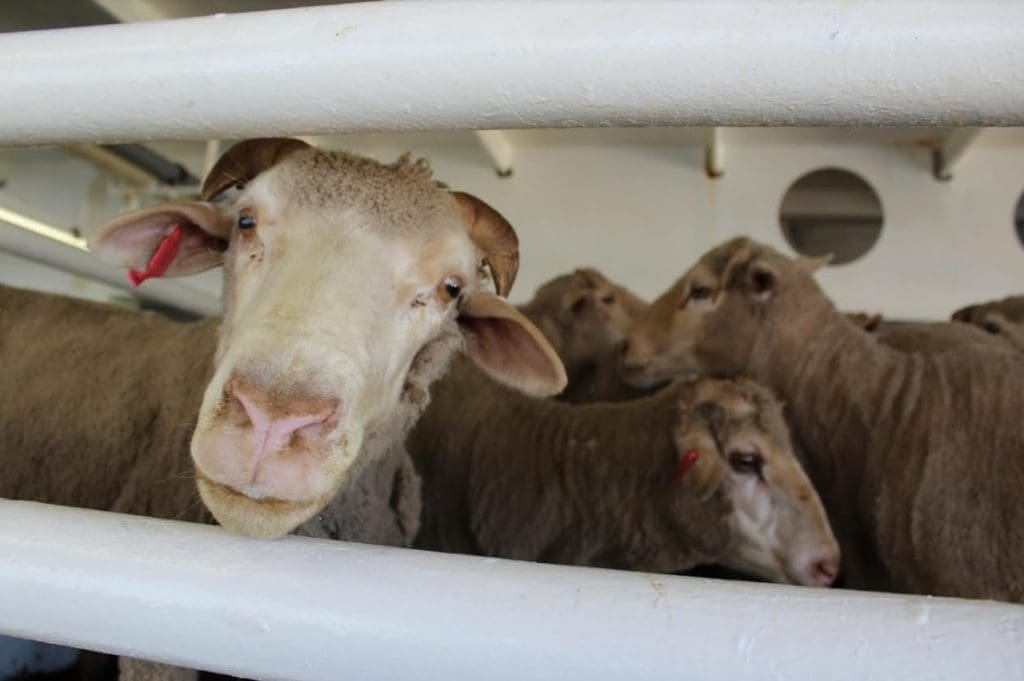
WESTERN Australian live exporters Emanuel Exports and its subsidiary EMS Rural Exports are free to resume shipments after December 3, more than three years after their licences were cancelled by the industry regulator.
The Department of Agriculture and Water Resources cancelled the export licences of Emanuel Exports Pty Ltd on 21 August 2018, and EMS Rural Exports Pty Ltd on 5 September 2018.
Both companies exported livestock on board the Awassi Express during 2017 when about 2400 sheep died during a voyage. A DAWR investigation triggered by video footage showed dead and dying sheep in cramped overheated conditions on Middle East shipments organised by Emanuels, including on the Awassi Express.
The companies appealed the licence cancellations and a department statement today confirmed that the Administrative Appeals Tribunal last Friday decided “the correct or preferable decision was to suspend the licences until 3 December 2021.”
“The AAT found that Emanuel Exports Pty Ltd did cease to be a body corporate of integrity, but that Emanuel Exports Pty Ltd has now sufficiently rehabilitated itself so as to resume its status as a body corporate of integrity.
“The AAT substituted a new decision that Emanuel Exports Pty Ltd’s licence is suspended from 22 June 2018 to 3 December 2021,” the department said.
“The AAT found that there should be a corresponding period of suspension of EMS Rural Exports’ licence because of the degree of association between the two companies.”
Emanuel Exports managing director Nicholas Daws said Emanuel Exports welcomed the AAT’s decision and order to reinstate the company’s licence.
“On 21 August 2018 the then Department of Agriculture and Water Resources (the department) issued a notice to cancel Emanuel Exports’ export licence, the following day Emanuel announced it would appeal this decision to the Administrative Appeals Tribunal (AAT).
“Good animal welfare outcomes are the core of our business operations,” Mr Daws said.
“The significant improvements implemented by the entire live export industry across the full supply chain over the past 3 years has demonstrated the livestock export industry is viable, sustainable and responsive to community expectations around animal welfare outcomes.”
The Department of Agriculture, Water and the Environment said it is committed to being an effective and visible regulator in the live animal export industry and remains resolute in its commitment to its role as the regulator of livestock exports.
The Awassi Express incident during 2017 made it clear there was a need for greater scrutiny of the industry, the department said.
Since then, the department has strengthened regulation by:
implementing a prohibition on exporting sheep to the Middle East during the hottest part of the northern hemisphere summer.
requiring heat stress management plans for northern hemisphere summer voyages.
lowering stocking densities for sheep on livestock export vessels.
requiring automatic measurement and collection of on-deck temperature readings for northern hemisphere summer voyages.
The department said the regular updating of the Australian Standards for the Export of Livestock demonstrates the Australian government’s strong commitment to supporting positive animal welfare outcomes through effective regulation. The most recent update to the standards was published on 18 November 2021 and can be found here on the department’s website.
Emanuel Exports was founded in 1955, and holding Export License No 6, it became one of Australia’s largest livestock exporters, and Australia’s largest exporter of live sheep, historically exporting well in excess of one million sheep per year to the Middle East. The company’s first Middle East sheep shipment left Fremantle in 1963, destined for Kuwait.
Licence decision is concerning – Animals Australia
Animals Australia chief executive officer Glenys Oogjes said she was sure that Animals Australia is not the only ones surprised by this decision, given Emanuel Exports’ extensive track record of breaches and animal suffering, and that they are facing a criminal prosecution in Western Australia relating to animal cruelty.
“This decision only adds to our concerns about the operation of the trade, given the significant reduction in oversight on ships and in importing countries due to the pandemic.
“We are back to a situation of what happens on ships, stays on ships – and recent extensive breaches in Indonesia indicates that the ESCAS system is once again failing to prevent horrific cruelty in importing countries,” she said.
“In the end, it is up to farmers as to which companies they choose to do business with and who they believe is deserving of their trust.
“Our hope, as ever, is that producers will choose to sell their animals into the local market, reduce stressful transport and have their animals handled and killed under Australian legal standards and oversight.”

HAVE YOUR SAY